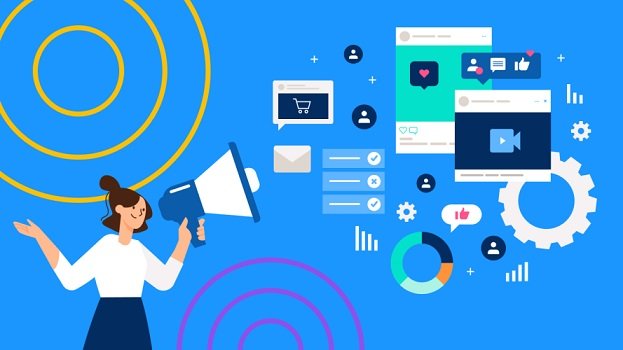Is it difficult to expand your clientele and draw in new business? A demand generating agency can be the revolutionary answer you’ve been looking for to advertise your products and grow your clientele. Take them into consideration. In this post, we’ll examine the function of demand generation companies and how, by consistently filling your sales funnel with quality leads, they may completely transform your company.
We’ll also help you select a trustworthy demand generation partner that precisely complements your company objectives. Are you prepared to increase your marketing efforts and draw in the proper clientele? Now let’s get going!
What Is Demand Generation?
Building and maintaining long-term relationships with customers by helping them go from first awareness to devoted advocates is demand generation. It includes a wide variety of marketing techniques, divided into inbound and outbound plans, such as:
Email marketing: To nurture prospects and uphold client connections, use automated programs and newsletters.
Outbound Strategies: Cold Email Outreach: Use tailored emails to inform potential customers about your offerings.
LinkedIn Networking: Establish business ties by interacting with prospective customers via LinkedIn groups, InMail, and direct messaging.
Cold Calling: Make phone calls to important decision-makers to learn more about their specific problems and to let them know about possible solutions.
Demand generation builds long-lasting pipelines of high-quality leads by regular contacts and showcasing the value of offers, in contrast to traditional marketing, which was focused on generating quick sales. Additionally important is data-driven decision making, which makes use of information to improve marketing campaigns and phone plans.
The ultimate goal of demand creation is to create a strong basis for sustained expansion by drawing in new clients, assisting them in making wise decisions, and fostering a sense of loyalty. It’s a comprehensive approach that guarantees the appropriate message reaches the appropriate audience at the appropriate moment, optimizing the effect of marketing initiatives and fostering corporate success.
Professional Views on Demand Generation Companies’ Future Role
Demand generating companies are looking forward to new challenges and opportunities as we enter the digital age. Traditionally essential in generating interest, sales and marketing professionals today have to deal with shifting customer behavior and developing technologies.
We asked professionals what they thought will happen to demand generation in the future. What they said was as follows:
Strategy Changes Will Be Influenced by Ethical Marketing and Privacy Laws
Demand generation firms’ function is probably going to shift as B2B business dynamics do. They might have to modify their tactics to take into account the increasing emphasis on data-driven decision-making, integrated omnichannel experiences, and personalized engagement.
Artificial intelligence and machine learning capabilities may be integrated by demand generation organizations, creating new possibilities for highly targeted and effective demand generating. These businesses must maintain a strong commitment to ethical marketing techniques and keep up with evolving privacy legislation.
CEO of Controlio Alexandr Makhanev
Account-Based Marketing (ABM) and Personalization Will Be Crucial
“As technology and consumer behavior change in the future, demand generation companies’ roles will probably continue to alter as well. The importance of personalization and account-based marketing is growing, and demand generation organizations must modify their approaches accordingly.
WriteCream’s founder, Krittin Kalra
Demand Generation Will Change With AR and VR Integration
“By giving prospects an immersive and engaging experience, AR and VR integration has the potential to completely transform the way businesses generate leads.” This will help demand-generating companies present their clients’ goods and services in a unique and eye-catching way.
For example, virtual reality (VR) will transport prospects to a virtual world where they may experience the same product in a creative way, while augmented reality (AR)-powered product demos will give them a closer look at how a product functions in its surroundings. It will offer helpful information and insights into the needs, preferences, and interests of prospects.
Marc Hardgrove, TheHOTH’s CEO










